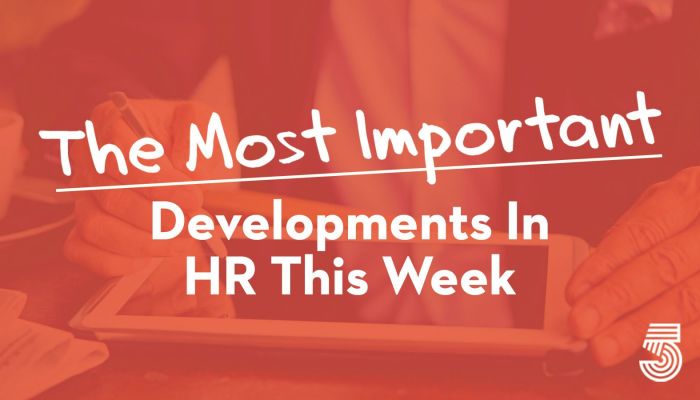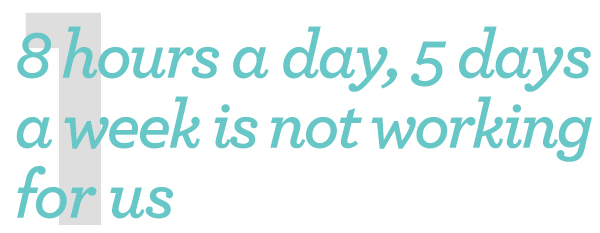
With more than half of American adults fully vaccinated against COVID, employers and employees alike have turned their eyes back to the office. They’re locked in a conflict over when they’ll return and, when they do, what the return will look like. But we shouldn’t just be talking about the parameters of how we get work done in a post-pandemic world. We should be pushing to do less of it. We have long needed better work-life balance, but despite constantly trying to hack our lives by waking up before dawn or exercising during lunch, that can be achieved only by actually working less. Iceland just published results from an experiment with a four-day week in Reykjavik that ran from 2015 to 2019 and found that productivity didn’t decline and in some cases even improved. The reduced schedule showed “that we are not just machines that just work,” one Icelandic participant said. “We are persons with desires and private lives, families and hobbies.” Employees reported being less burned out and healthier. The New York Times


Some organizations — trying to better support a partially stay-at-home workforce and eager to capitalize on employees’ desire for flexibility while (for many) looking to save money on office-related expenses — are contemplating a more radical change: Scrapping dedicated workstations for each staffer in favor of “hot-desking.” In the hot-desking model, people select whatever seat seems to best meet their criteria when they arrive in the office. The whole system is a lot like boarding a Southwest Airlines open-seating flight: Some people choose windows, some aisles — and some get the leftover middles. And just like the Southwest seat scramble, hot-desking can be quite stressful for the people asked to do it. This should give businesses pause before adopting this policy in haste and assuming this move will benefit employee well-being and their bottom line. NBC News
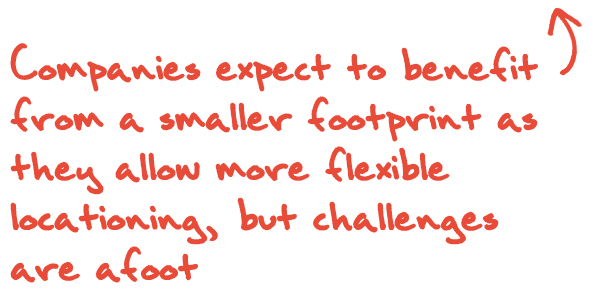
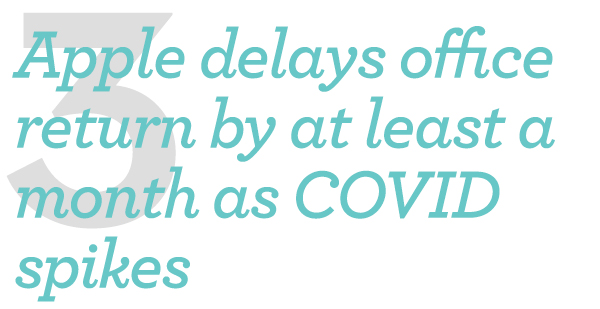
Apple Inc., responding to a surge in COVID variants, is pushing back its office re-opening by at least a month to October at the earliest and recommending that workers at its retail stores wear masks, according to people with knowledge of the matter. The iPhone maker is one of the first U.S. tech giants to delay plans for a return to normality as COVID-19 and highly transmissible variants persist around the world. Apple will give employees at least a month’s warning before mandating a return to offices, the people said, asking for anonymity to discuss internal policy. Chief Executive Officer Tim Cook told employees in June that they should begin returning to offices by early September for at least three days a week. In an internal memo at the time, Cook cited the availability of vaccinations and declining infection rates. Some employees of the Cupertino, California-based technology giant have worked from Apple offices on certain days throughout the COVID-19 pandemic. Bloomberg

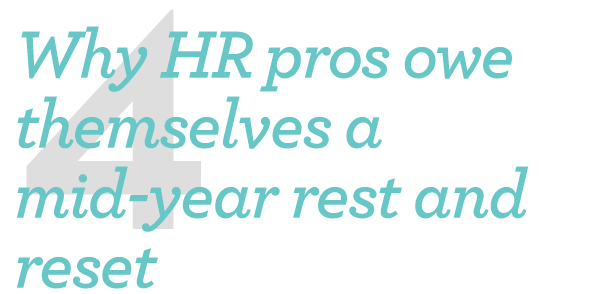
I’ll bet you can join me in feeling uniquely exhausted as the summer started. While medical professionals, essential workers, teachers, and first responders had been dealt a far more challenging hand, HR was at the tip of the spear of so many of the challenges. Unlike many other functions that had less change to lead, HR never got a break, from RIFs to office closures (and returns), to remote work and outrage over inequities, to workplace safety and vaccines, and so much more — we are entitled to feel wiped out! HR and the professionals who run the function are a classic case of “the shoemaker’s children go barefoot.” We are so focused on our executives, managers and employees that we oftentimes end up putting ourselves (both professionally and personally) last. It is time now for each of us to give ourselves a mid-year reset. HR Executive

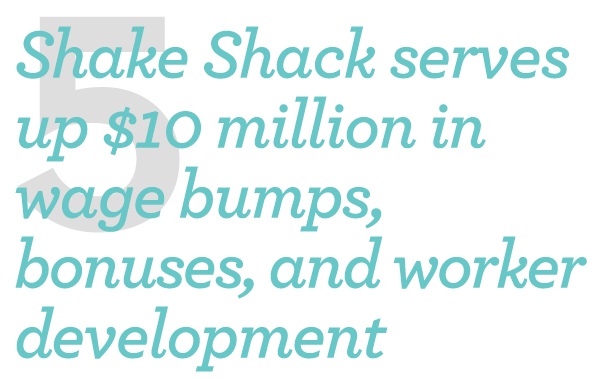
Shake Shack will be committing $10 million to its restaurant teams, including $9 million in wage increases, the burger-and-fry joint revealed Wednesday. The funds will be dispersed over the next 12 months, with nearly $1 million going toward hiring bonuses and an additional amount toward leadership development programs for employees, as well as equity grants for managers. “We are committed to doing the right thing for our teams, guests, and communities during the good times and especially the tough times, and the tough times brought on by the COVID-19 pandemic have shown us the resilience of our people,” the company said Wednesday. According to its blog post, the investment is aimed at “retaining the best restaurant talent, ensuring current and future employees are well-paid, cared for, and have a path to promotion and opportunity for sustainable career growth within Shake Shack and the industry at large.” Fast Company







